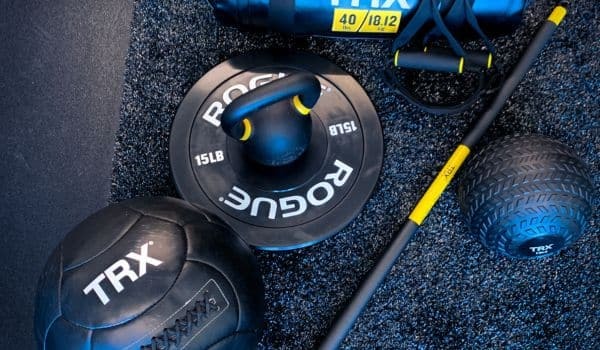Personal Trainer for Seniors: What To Consider

As we age, maintaining an active lifestyle becomes increasingly important for both physical and mental well-being. However, it’s crucial to approach exercise with caution and consider the unique needs and limitations that come with aging. This is where a personal trainer specializing in senior fitness can be invaluable.
The Benefits of a Personal Trainer for Seniors
A personal trainer can offer a wide range of benefits for older adults, including:
Customized exercise programs: A trainer can design a program specifically tailored to your fitness level, goals, and any health conditions you may have.
Improved strength and balance: Exercises focused on strength and balance can help reduce the risk of falls, a major concern for seniors.
Increased flexibility and mobility: Regular stretching and mobility exercises can improve your range of motion and make everyday activities easier.
Enhanced cardiovascular health: A trainer can help you safely increase your cardiovascular fitness, improving your heart health and overall stamina.
Motivation and support: A trainer can provide encouragement and accountability, helping you stay on track with your fitness goals.
Social interaction: Working with a trainer can provide an opportunity for social interaction and companionship.
What to Consider When Choosing a Personal Trainer for Seniors
When selecting a personal trainer for yourself or a loved one, there are several important factors to consider.
1. Qualifications and Experience
Certification: Ensure the trainer holds a recognized certification in personal training, preferably with a specialization in senior fitness.
Experience: Ask about their experience working with older adults and any specific health conditions you may have.
References: Request references from other senior clients and contact them to inquire about their experiences.
2. Communication and Personality
Clear Communication: The trainer should be able to explain exercises and fitness concepts in a way you can easily understand.
Patient and Encouraging: Look for a trainer who is patient, supportive, and understands the unique challenges faced by older adults.
Personality Fit: It’s important to feel comfortable and at ease with your trainer, so choose someone whose personality meshes well with yours.
3. Program Customization and Adaptability
Individualized Programs: The trainer should be willing to design a program tailored to your specific needs, goals, and limitations.
Flexibility: They should be able to adapt exercises and workouts as needed, taking into account any changes in your health or fitness level.
Progression: The program should include a plan for gradual progression to help you safely improve your fitness over time.
4. Location and Cost
Convenience: Consider the location of the trainer’s studio or gym and whether it’s easily accessible for you.
Home Visits: Some trainers offer home visits, which can be a convenient option if you have mobility limitations or prefer to exercise in the comfort of your own home.
Cost: Personal training can vary in cost, so compare rates and packages from different trainers to find one that fits your budget.
5. Additional Services
Nutritional Guidance: Some trainers offer nutritional advice and meal planning to help you support your fitness goals with a healthy diet.
Group Classes: If you enjoy exercising with others, inquire about group classes for seniors that the trainer may offer.
Online Training: Some trainers offer online training options, which can be a good alternative if in-person sessions aren’t feasible.
Personal Trainer for Seniors Red Flags to Watch Out For
While most personal trainers are qualified and professional, there are a few red flags to be aware of:
- Lack of Certification or Experience: Be wary of trainers who lack proper certification or experience working with seniors.
- Pushy Sales Tactics: A reputable trainer will focus on your needs and goals, not on pressuring you into signing a long-term contract.
- One-Size-Fits-All Programs: Avoid trainers who offer generic programs without considering your individual needs and limitations.
- Disregard for Safety: A good trainer will prioritize your safety and well-being, modifying exercises as needed to prevent injuries.
- Poor Communication: If you feel like the trainer isn’t listening to your concerns or explaining things clearly, it may be best to look elsewhere.
Tips for Getting the Most Out of Your Personal Training Sessions as a Senior
- Communicate Openly: Let your trainer know about any health concerns, limitations, or goals you have.
- Be Consistent: Attend your sessions regularly and follow your trainer’s recommendations outside of sessions.
- Listen to Your Body: If something hurts, stop and let your trainer know. Don’t push yourself beyond your limits.
- Ask Questions: If you don’t understand an exercise or concept, don’t be afraid to ask for clarification.
- Have Fun: Exercise should be enjoyable! Find a trainer who makes the experience fun and engaging.
Personal Training for Senior – Final Thoughts
Investing in a personal trainer can be a wise decision for seniors looking to improve their health, fitness, and overall quality of life. By carefully considering the factors outlined in this guide, you can find a qualified and experienced trainer who will help you achieve your fitness goals safely and effectively. Remember, it’s never too late to start prioritizing your health and well-being!
If you’re in the Woodland Hills or Los Angeles area, book your FREE 1-1 fitness assessment with our expert trainers at Pure Function Fitness Center and discover a personalized approach to a stronger, healthier you.
The content provided on this health and fitness blog is for informational purposes only. It is not intended as a substitute for professional medical advice, diagnosis, or treatment. Always consult with a qualified healthcare provider before starting any new exercise program, diet, or health regimen. The authors and publishers of this blog are not responsible for any injuries or health issues that may result from the use or misuse of the information provided.